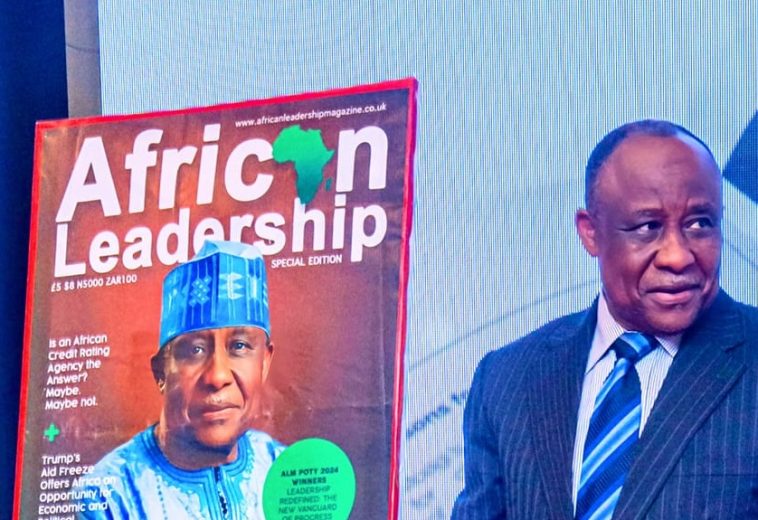The intersection of environmental challenges and international diplomacy presents a strategic opportunity for enhanced engagement. Nigeria, one of Africa’s largest oil producers, has grappled with severe oil spills that have impacted its economy, communities, and international trade relationships. These environmental challenges also shape Nigeria’s diplomatic and economic ties with key partners like the United States.
Under President Donald Trump, the U.S. pursued an energy strategy that prioritised economic growth, energy independence, and strong trade relationships. These policies offer valuable insights into how economic diplomacy can evolve to strengthen U.S.-Africa relations while addressing environmental concerns.
This article examines Nigeria’s oil spills, their impact on trade, and how these lessons can shape a more balanced and sustainable approach to U.S.-Africa economic engagement.
The Nigerian Oil Spill Challenge
Nigeria’s oil industry has been central to its economic growth, with the Niger Delta serving as the hub of petroleum production. However, environmental challenges—particularly oil spills—pose significant threats to sustainable development. The key causes include:
- Operational Issues by Multinational Oil Companies – Major oil companies, such as Shell, have experienced infrastructure failures due to aging equipment, poor maintenance, and technical malfunctions.
- Pipeline Vandalism and Oil Theft – Sabotage and illegal bunkering remain rampant in the Niger Delta, exacerbating environmental degradation and economic losses.
- Regulatory Challenges and Weak Enforcement – Lax oversight has allowed oil companies to operate with limited accountability, leading to repeated environmental damage.
Between 2011 and 2021, Nigeria recorded 9,870 oil spill incidents, releasing an estimated 466,214 barrels of crude oil into the environment, according to the National Oil Spill Detection and Response Agency (NOSDRA). These spills have devastated local agriculture, reduced food security, and contaminated water bodies, threatening both livelihoods and ecosystems.
Addressing these challenges requires a collaborative approach involving government agencies, industry stakeholders, and international partners like the United States.
U.S.-Nigeria Economic Diplomacy: A Strong Foundation
Economic diplomacy has played a pivotal role in U.S.-Nigeria relations, particularly in the energy sector. The United States remains a key investor in Nigeria’s oil and gas industry, with major corporations such as ExxonMobil and Chevron playing significant roles. Key aspects of this relationship include:
- Trade and Investment – The U.S. is the largest foreign investor in Nigeria, with American foreign direct investment concentrated in the petroleum and mining sectors.
- Security Cooperation – The U.S. has supported Nigeria in protecting critical energy infrastructure from sabotage and theft, enhancing oil sector stability.
- Corporate Social Responsibility (CSR) Initiatives – American energy firms have contributed to local development through projects focused on healthcare, education, and employment in oil-producing regions.
Advancing Economic Diplomacy Through Energy Cooperation
President Trump’s energy policies—emphasising economic partnerships and energy independence—offer a strategic framework for future U.S.-Africa engagement. Building on these principles, the following strategies can enhance economic diplomacy while addressing environmental concerns:
- Promoting Responsible Investment
- Infrastructure Modernisation: Encouraging U.S. firms to invest in Nigeria’s oil infrastructure can reduce spills caused by equipment failures. Upgraded pipelines, refineries, and storage facilities will enhance operational safety.
- Environmental Remediation: Investing in oil spill clean-up initiatives can restore affected communities and promote sustainable development.
- Leveraging Energy Innovation
- Cleaner Extraction Technologies: Collaborating on advanced oil extraction techniques, such as gas reinjection and biodegradable drilling fluids, can reduce environmental impact.
- Renewable Energy Expansion: Strengthening partnerships in solar, wind, and other renewable energy sectors can diversify Nigeria’s energy mix while aligning with global sustainability goals.
- Enhancing Regulatory Collaboration
- Capacity Building: The U.S. can assist Nigeria in strengthening its regulatory frameworks through technical expertise and training for environmental agencies.
- Policy Exchange: Sharing best practices on environmental governance can help Nigeria implement policies that balance economic growth with ecological responsibility. The U.S.-Nigeria Strategic Energy Dialogue offers a key platform for such exchanges.
- Strengthening Public-Private Partnerships (PPPs)
- Joint Ventures: Facilitating partnerships between U.S. and Nigerian firms can promote technology transfer and adherence to high environmental standards.
- Diversifying Energy Engagement Beyond Oil
- Natural Gas Development: Expanding investment in Nigeria’s natural gas sector can provide a cleaner alternative to crude oil.
- Renewable Energy Investments: Supporting green energy projects can open new trade opportunities and strengthen long-term U.S.-Africa relations.
The convergence of energy security, environmental responsibility, and economic diplomacy presents a pivotal opportunity for both the U.S. and Africa. As Nigeria faces the consequences of decades of oil spills, a unique chance emerges to foster innovation, sustainable development, and strategic partnerships.
For the United States, deeper engagement in Nigeria’s energy sector is more than just an economic pursuit—it is an opportunity to redefine its role in Africa’s future. By investing in cleaner technologies, promoting responsible energy practices, and expanding beyond oil, U.S. firms can secure long-term trade benefits while championing environmental stewardship.
For Nigeria and the broader African continent, this partnership represents a gateway to a more sustainable and diversified energy future. Strengthening regulatory frameworks, prioritising environmental restoration, and embracing renewable energy investments can position Africa as a leader in global energy diplomacy.
The path forward is clear: a U.S.-Africa partnership built on sustainability, technology, and mutual economic growth. Now is the time to rewrite the narrative—shifting from resource exploitation to responsible energy diplomacy that fuels shared prosperity for generations to come.
Dr. Joshua Rufus Abadi is a renowned environmental engineer specializing in water contamination. He has provided consultancy on oil spills in Nigeria and has spearheaded the EU WasClean project. Additionally, he collaborates with the University of Southampton and the University of Brighton, and leads en vironmental initiatives for Inspired Grace Healthcare.
vironmental initiatives for Inspired Grace Healthcare.


